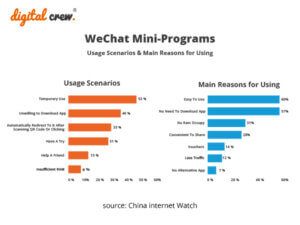China’s New E-commerce Law Will Affect The Grey Market Sellers Who Are Better Known As Daigous

On 31 August 2018, the Standing Committee of the National People’s Congress (“NPC”) passed China’s first law regulating electronic commerce, the People’s Republic of China e- Commerce Law. The new law will enter into force on 1 January 2019.
The professed aim of this new law is to regulate China’s rapidly growing e-commerce sector, harmonize its rules with those applicable to brick-and-mortar shops, maintain “market order,” facilitate growth, and eradicate IP infringements, scams and unfair competition.
The Aim Of China’s New e-commerce Law Is?
Reading between the lines, the real aim of the E-commerce Law is to try and bring some order to what has become a hugely successful, but somewhat unruly sector of the Chinese economy. If you want evidence of the runaway success story that is the China e-commerce market, you need look no further than the last Singles Day (11 November), a sort of anti – Valentine’s Day shopping binge in which Alibaba reportedly made a record US $25 billion in sales on the day, a 40% increase on the previous year, involving 140,000 brands, 15 million products, 12 million orders, and 1.48 billion payments processed.
On the other hand, if you want evidence of how some less scrupulous online operators have scammed, imposed egregious terms on consumers, or otherwise violated consumers’ rights, you need to look no further than the huge volume of cases blocking up the Chinese courts.
Scope of the law
One of the most striking features of the new e-Commerce Law is its broad scope: the law is applicable to all e-commerce activities taking place within the People’s Republic of China. E-commerce is broadly defined as the sales of goods or services through the internet or any other information network. Some activities, such as the provision of financial products and services, news, audio or video programs, publication and cultural services are excluded from the scope of the law. Presumably these are sensitive products which will be separately regulated.
The law specifically regulates the conduct of three main types of e-commerce operators
-Platform operators like Taobao, Alibaba and JD.com
-In-Platform operators e.g. individual e-shops active on those platforms such as sellers who have T-Mall shops
-Other operators who conduct their e-commerce business through their own websites or any other network services like traditional retailers who trade through public accounts on instant messaging apps
E-commerce advertising

The new law reiterates some of the prohibitions under the People’s Republic of China Advertising Law, but tailors them to an online setting: e.g. it is forbidden to fabricate false transaction information, produce false user reviews, delete genuine user reviews and sponsored listings should be clearly marked as such. The law also contains a general prohibition on misleading and defrauding consumers. Moreover, there is an important development tracking China’s broader moves towards more comprehensive data protection regulation. E-commerce operators must give consumers the choice as to whether or not they wish to have their search results personalized based on their identifiable traits, personal interests and so forth. This will require some search operators to reconfigure their systems in addition to the law
How Are Daigous Or Grey Market Sellers Deeply Affected?

Daigous primarily make their profits off the markup between overseas products and those that are sold in China already. The margins are set to become thinner and they might have to hike up their prices or exit the business completely, given that daigous primarily profit off of the markup between overseas products and those already sold in China, their margins will become even thinner and they may exit the business completely. For cross-border e-commerce, this is advantageous, as more daigou consumers will be inclined to purchase directly from international retailers and brands.
Conclusion
The e-Commerce Law is, all-in-all, largely a reflection of existing practice, but also aims to eliminate some of the more egregious forms of online commercial behaviour. It is a delicate and difficult balancing act, and only time will tell whether the right balance has been struck between all the stakeholders who will all, no doubt, have expressed strong views on how their interests needed protection
The focus of the new e-Commerce Law is also firmly on domestic e-commerce, and there is not much in the way of detail on how cross- border e-commerce will be regulated.
There is a clear duality to many of the provisions, depending on which side of the fence you sit. One of the most controversial aspects of the new law is the obligation for individual web shops on e-commerce platforms to obtain a business license and pay taxes. It may put many smaller players out of business or force them underground.









































































